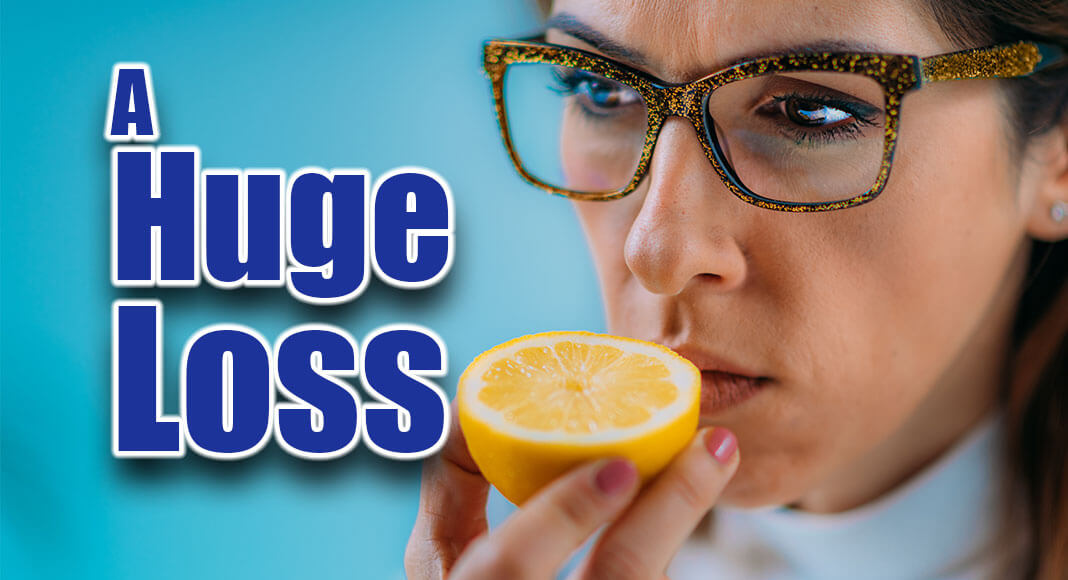
Mega Doctor News
Newswise — One of the most common and disturbing side effects of COVID-19 is the loss of the sense of smell. New research from the University of Cincinnati found some common coping mechanisms that helped COVID-19 patients deal with a lessened sense of smell, which severely impacts the sense of taste. The study was published in the International Forum of Allergies & Rhinology.
The combination of the loss of smell and taste, which are also known as the chemosensory senses, due to COVID-19 has been particularly devastating, with research showing associated depression, anxiety and impaired quality of life. It is something Katie Phillips, MD, assistant professor in the Department of Otolaryngology, Head & Neck Surgery at the UC College of Medicine sees in many COVID-19 patients who come into her clinic.
“Over and over again I kept hearing people talk about ‘I can’t taste anything but I am eating a ton of crunchy foods or I miss doing x, y or z,’ so I said we’ve got to record what people are doing,” she says. “It’s something I now focus on when seeing patients who have lost their sense of smell due to COVID-19. I tell them you’ve got to find a way to compensate since we don’t have a magic drug that can make their sense of smell come back completely when it’s been out for some time.”
Phillips continued to hear patients share their experiences following COVID-19 of not being able to smell anything, which was impacting their sense of flavor, and subsequently, their ability to enjoy their meal. A common theme was people eating more foods with distinct textures, such as strawberries because of their ability to sense the texture of the fruit. Phillips and her colleagues decided to conduct a qualitative study to learn more about how people were handling this challenge with the goal of publishing the findings as a tool for counseling patients.
Five women were interviewed extensively about their experiences with loss of smell from COVID-19.
“Crunchiness was one of those things that people mentioned along with texture, and then the temperature and carbonation was brought up in multiple interviews, too,” says Phillips. “It seemed like the patients we interviewed liked cold things. They liked carbonated beverages and then they liked the texture. And some of the texture was different. Some people really liked soft things, some liked crunchy things along those lines. It seemed as if texture was a really important component.”
Phillips and her team documented the responses from the patients in the study. Here is a sampling:
“I mean, I can force myself to eat it, but it’s not enjoyable like it used to be.”
“It’s very, very, very uncomfortable, upsetting. Like I said, I really enjoy food. From going to love and enjoying the taste of food, I can’t really enjoy or say I love food anymore.”
“It gets emotional too, because like I said, I cook a lot for my children. I got five children, I got two grandbabies and I cook a lot. But now it’s like, I don’t even want to cook. My cooking has changed because I can’t smell or taste my food.”
Phillips says some of the responses highlighted the emotional impact on people who lost their sense of smell to COVID-19.
“I think the other important component for this whole issue is the real mental health impact it has on patients when they can’t taste and smell,” she says. “I think just letting people know there is a mental health impact and acknowledging that so that they need to get help and treatment if they’re having difficulty and that they’re in the norm of people dealing with that.”
Phillips says people dealt with the loss of their sense of smell by employing a variety of strategies. Some went to a candle store or a coffee shop to experience strong smells. She describes it as a lot of trial and error.
“I think getting the knowledge out is key,” she says. “This is something I repeat to my patients. It’s more about how people in that situation can compensate. I don’t think it’s a treatment mechanism for taste and smell loss. It’s more how you deal with this loss.”









